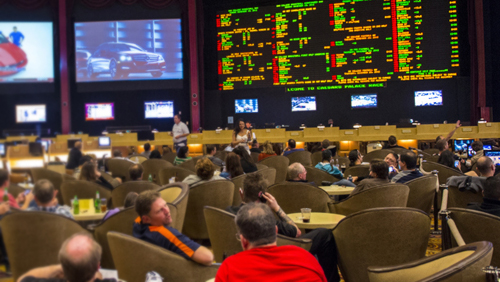Minnesota is one of the latest states in the U.S. said to be considering legalizing sports gambling. Introduction of legislation on the subject is always a sensitive issue, but this is compounded in states that have a substantial Native Indian population. Invariably, the tribes have been given federal and local authorization to offer all types of gambling, which often creates issues when lawmakers try to expand any type of gambling. The same is going to hold true for Minnesota, as the tribes have already said they will fight any legislation seeking to offer sports gambling – despite the fact that they acknowledge having no interest in offering the activity.
 Roger Chamberlain is a Minnesota Senator who is optimistic about the future of sports gambling in the state. He is also the chairperson of the state’s Senate Taxes Committee and has been a strong proponent of expanded gambling operations. He feels certain that 2019 will be the year for sports betting in Minnesota, even though he recognizes that changes need to be made to bills if they’re to receive approval.
Roger Chamberlain is a Minnesota Senator who is optimistic about the future of sports gambling in the state. He is also the chairperson of the state’s Senate Taxes Committee and has been a strong proponent of expanded gambling operations. He feels certain that 2019 will be the year for sports betting in Minnesota, even though he recognizes that changes need to be made to bills if they’re to receive approval.
One of these changes is in regards to how to tax the activity. Some efforts have sought to introduce a 1% tax on all sports wagers, but there has been concern that it may not be enough. An amount too high could keep operators out of the industry and an amount too low could prevent the state from making a profit.
In addition, some argue that the Gaming Control Board, which is already in place for other gambling activity, should oversee the industry. Others, however, want a new group formed specifically for sports gambling oversight.
These issues could become irrelevant very quickly. Minnesota is home to 11 tribal gaming facilities and the state was one of the first in the country to establish gambling compacts with tribes. The compacts don’t cover sports gambling, but this could prove to be an unimportant factor. Tribes often win anytime a state wants to introduce new gambling of any kind and this time won’t be any different.
The tribes of Minnesota are ready to fight any legislation that would seek to offer sports gambling. In a letter to Governor Tim Waltz and legislative leaders, the chairperson of the Minnesota Indian Gaming Association (MIGA) asserted that they have no interest in sports gambling, but they will definitely use their power to oppose any legislation that would pave the way for commercial casinos to offer the activity.
The letter also stated, “While there is a desire by some to consider this matter during the present session, it seems that the public interest would be best served first by careful study of sports betting’s implications in this state, examination of other states’ experiences where sports betting has been legalized, and thorough consultation with the large number of stakeholders interested in it.”
Minnesota lawmakers don’t need tribal consent to legalize sports gambling. However, if the tribes acknowledge (as they have) that they would work to prevent any type of gambling activity, it will undoubtedly give legislators a reason to think twice about trying to approve any gambling bill.